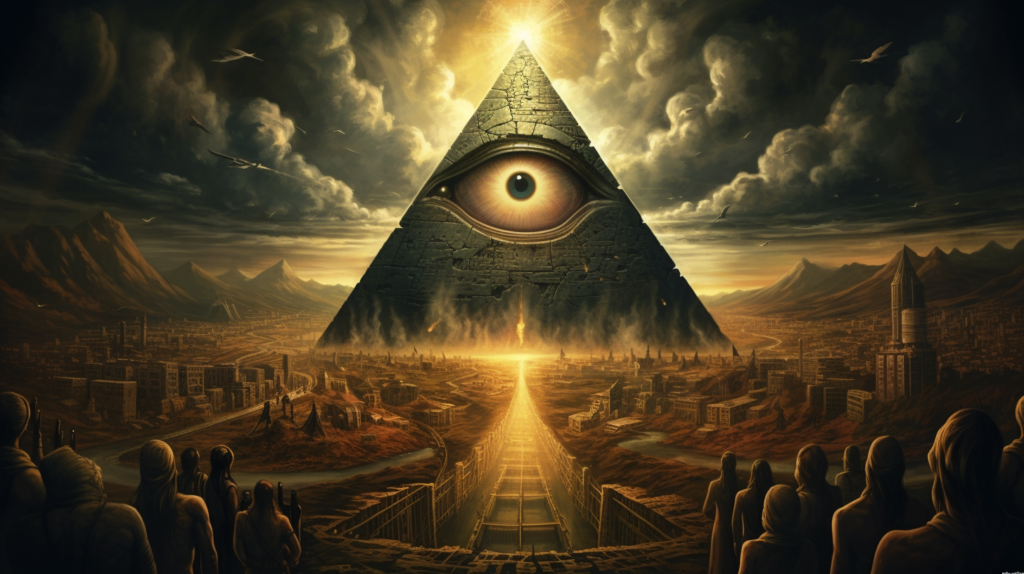The Illuminati, often shrouded in mystery and controversy, is one of the most enigmatic organizations in modern history. Its origins, philosophies, and the oath purportedly taken by its members have fueled countless conspiracy theories and speculative fiction. To truly understand the Illuminati, it is essential to explore its historical beginnings and the development of its secretive oath.
The Birth of the Illuminati
The Illuminati was founded on May 1, 1776, in Ingolstadt, Bavaria, by Adam Weishaupt, a professor of law. Weishaupt was a man of Enlightenment ideals, and his dissatisfaction with the religious and political structures of his time spurred him to create a society that would champion rationalism, secularism, and individual freedom. The original name of the organization was the “Order of the Illuminati” or “Illuminatenorden,” which translates to “Order of the Illuminated.”
The organization began with a small group of like-minded intellectuals and quickly expanded. Its goals were root in the Enlightenment’s emphasis on reason and the advancement of human knowledge. The Illuminati aimed to infiltrate existing institutions, including governments and churches, to promote their ideals and effect social and political reform.
Structure and Philosophy
The Illuminati was structured with a hierarchical system, inspired by Freemasonry, which Weishaupt admired. Members were categorized into different levels, or “degrees,” each with specific roles and responsibilities. The organization’s structure was designed to maintain secrecy and control while promoting a unified agenda.
The philosophy of the Illuminati was heavily influence by Enlightenment thinkers such as Voltaire, Diderot, and Rousseau. The Order advocated for the separation of church and state, the promotion of science and reason, and the establishment of a more egalitarian society. These ideals often put them at odds with the conservative and religious institutions of their time.
The Eternal Oath

Central to the mystique of the Illuminati is the concept of the “eternal oath.” This oath, taken by members upon their initiation into the Order, was design to bind them to secrecy and loyalty. The oath was intend to ensure that members remain loyal to the Order and its mission, even in the face of potential danger or personal loss. This element of secrecy and loyalty was crucial for the organization, as it operated covertly and sought to influence society from the shadows. Historical Origins of the Illuminati and Their Oath
Expansion and Influence
Initially, the Illuminati’s influence was limit to Bavaria and surrounding regions. However, their ideas began to spread through Europe, partly due to the Order’s infiltration of Masonic lodges and other secret societies. The Illuminati’s emphasis on reason and reform resonated with many Enlightenment thinkers, furthering their influence. Despite its relatively short existence, the Illuminati’s impact was significant. The organization was perceive as a threat by conservative and religious authorities, leading to its suppression. In 1785, the Bavarian government, alarmed by the Order’s growing influence and secretive nature, banned the Illuminati and pursued its members.
The Decline and Legacy
Following the ban, the Illuminati went underground, and much of its history became shroud in secrecy and legend. Some members continue to advocate for the Order’s principles in secret, but the organization as it was originally conceive cease to exist.
The decline of the Illuminati did not diminish its impact on popular culture and conspiracy theories. The Order’s secrecy, combined with its association with powerful intellectuals and its opposition to established institutions, led to numerous theories about its continued existence and influence. Many conspiracy theories suggest that the Illuminati has continued to operate in the shadows, controlling global events and shaping world affairs.
The Illuminati has also left a lasting mark on literature, media, and popular culture. From Dan Brown’s novels to various films and documentaries, the Order’s secretive nature and purported influence have captured the imagination of many. This portrayal often exaggerates or distorts the historical reality, but it reflects the enduring fascination with the concept of a secret society shaping history from behind the scenes.
Conclusion
The Illuminati’s origins are root in the Enlightenment ideals of reason, secularism, and reform. Founded by Adam Weishaupt in 1776, the Order sought to promote these ideals through a secretive and hierarchical structure. The eternal oath, central to the organization’s operations, symbolized the commitment of its members to its principles and the secrecy surrounding its activities. Its influence on modern conspiracy theories and popular culture underscores the enduring fascination with the idea of a secret society shaping global events. Historical Origins of the Illuminati and Their Oath

